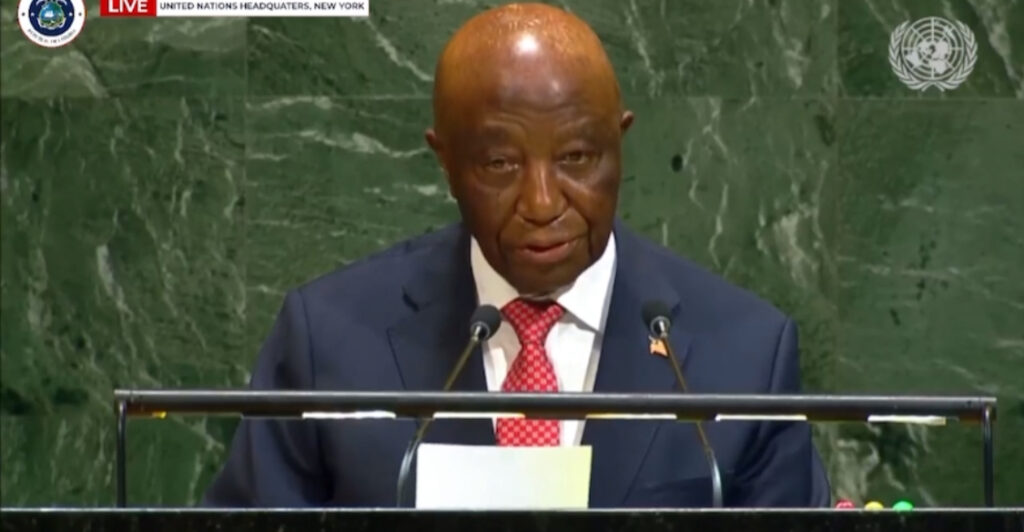President Joseph Nyuma Boakai’s address to the 80th United Nations General Assembly in New York on September 23, 2025, was a strong statement of Liberia’s place in world affairs. Speaking under the theme “Better Together: 80 Years and More for Peace, Development, and Human Rights,” Boakai positioned Liberia not just as a nation recovering from conflict but as a founding member of the UN with a responsibility to shape global debate.
From an international relations perspective, Boakai’s speech was firm and global. He took a clear position on two of the world’s most pressing conflicts—the Russia–Ukraine war and the Israeli–Palestinian crisis. He reaffirmed Liberia’s support for diplomacy, accountability, and the peaceful resolution of disputes.
On the Middle East, he echoed the African Union’s position by backing the two-state solution, insisting that Israelis and Palestinians must live side by side in peace. These were not cautious words; they were direct, principled, and reflective of Liberia’s own hard lessons from war.
On Africa’s role in the international system, Boakai was blunt. With Liberia set to serve on the United Nations Security Council for 2026–2027, he declared that the seat belongs not only to Liberia but to Africa. He promised that Liberia’s voice at the Council will be shaped by Africa’s experiences, demands, and aspirations—including the push for permanent African representation in global decision-making.
This was a bold message that showed Liberia intends to speak beyond its borders.
Boakai also tied Liberia’s domestic vision to global challenges. He presented his ARREST Agenda—agriculture, infrastructure, governance, education, health, and innovation—as a roadmap for inclusive development at home, while linking it to issues such as climate change, global debt reform, and sustainable development. He stressed that the current international financial architecture is outdated and unfair to developing countries, and he called for urgent reforms that “leave no nation behind.”
Significantly, Boakai used the world stage to renew his call for international support in establishing a War and Economic Crimes Court in Liberia. For a country still grappling with its painful past, the message was clear: reconciliation and justice are inseparable, and Liberia is ready to lead by example.
Overall, Boakai’s speech was strong, deliberate, and global in tone. He spoke not as the leader of a small, fragile state but as a statesman of the oldest African republic—one that helped found the United Nations and now seeks to remind the world of its enduring voice.

